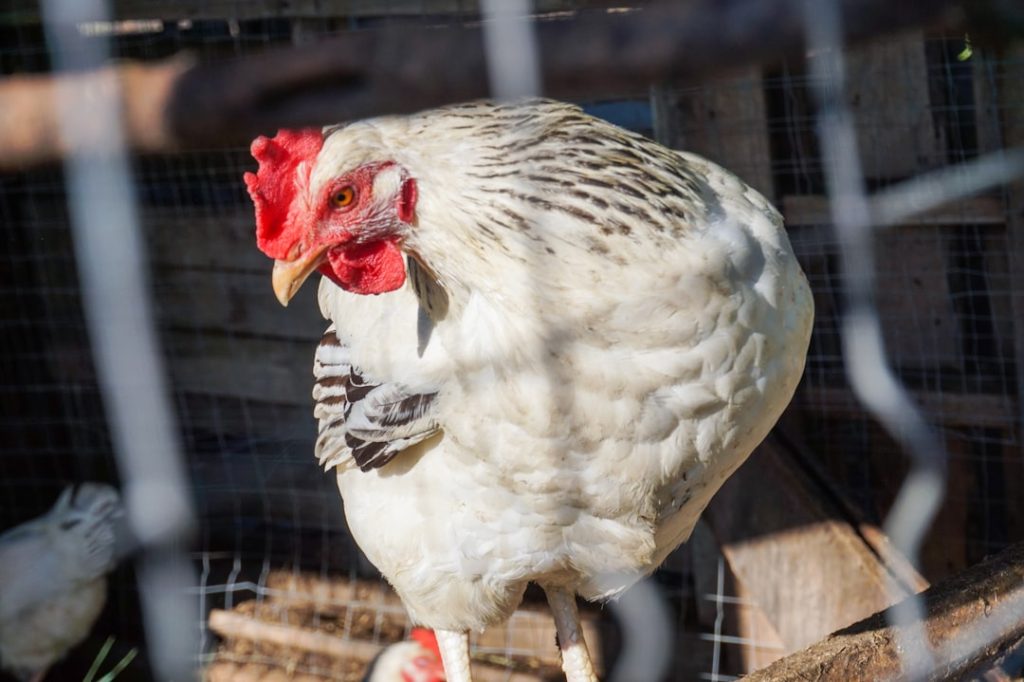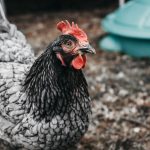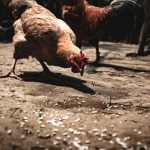When selecting chicken breeds, several factors must be considered for successful poultry raising. Climate adaptability, intended purpose (egg-laying, meat production, or dual-purpose), and temperament are key considerations. Some breeds are better suited for colder regions, while others perform well in warmer climates.
Egg-laying breeds differ from those primarily raised for meat, and dual-purpose breeds offer both qualities. Thorough research into each breed’s characteristics and requirements is essential before making a decision. The Rhode Island Red is a popular egg-laying breed, known for its consistent production and hardiness, making it suitable for novice chicken keepers.
For those seeking a dual-purpose breed, the Plymouth Rock is a viable option, offering both egg and meat production capabilities. It is also known for its friendly nature and adaptability to various climates. The Cornish Cross is a preferred choice for meat production due to its rapid growth rate and high meat yield.
Chicken temperament is another crucial factor to consider. Breeds vary in their disposition, with some being more docile and easier to handle, while others may be more flighty or aggressive. Selecting a breed that matches the keeper’s experience level and comfort with handling chickens is important.
Space requirements also differ among breeds, with some needing more room to roam than others. Careful consideration of these factors will help in choosing a breed that will thrive under specific conditions and meet the keeper’s objectives.
Table of Contents
- 1 Building a Coop
- 2 Providing Proper Nutrition
- 3 Ensuring Safety and Security
- 4 Maintaining Cleanliness
- 5 Monitoring Health and Wellness
- 6 Establishing a Routine and Schedule
- 7 FAQs
- 7.1 What are the benefits of keeping chickens near the house?
- 7.2 What are some important considerations for keeping chickens near the house?
- 7.3 What are some common challenges of keeping chickens near the house?
- 7.4 What are some tips for maintaining a clean and healthy chicken coop near the house?
- 7.5 What are some important safety considerations for keeping chickens near the house?
Key Takeaways
- Consider the climate, space, and purpose when choosing the right breed of chicken for your coop
- When building a coop, prioritize ventilation, predator-proofing, and easy access for cleaning and egg collection
- Provide proper nutrition by offering a balanced diet of commercial feed, fresh water, and occasional treats
- Ensure safety and security by regularly inspecting the coop for any potential hazards or weak spots
- Maintain cleanliness by regularly cleaning the coop, nesting boxes, and providing dust baths for the chickens
- Monitor the health and wellness of your chickens by observing their behavior, checking for signs of illness, and providing regular veterinary care
- Establish a routine and schedule for feeding, cleaning, and egg collection to keep your chickens healthy and happy
Building a Coop
Size and Space Considerations
The size of the coop will depend on the number of chickens you plan to raise, as well as the space available on your property. It’s essential to provide at least 2-3 square feet of space per chicken to ensure they have enough room to move around comfortably.
Ventilation and Predator Protection
The coop should be well-ventilated to prevent moisture buildup and ensure good air circulation. Predator protection is another crucial aspect of building a coop. Chickens are vulnerable to predators such as foxes, raccoons, and birds of prey, so it’s essential to construct a coop that is secure and predator-proof. This may involve using sturdy materials such as hardware cloth or welded wire to prevent predators from gaining access to the coop.
Design and Maintenance Considerations
When designing a coop, it’s also important to consider the layout and features that will make it easy to clean and maintain. This may include adding removable roosts and nesting boxes, as well as easy access to food and water containers. By carefully planning and constructing a coop that meets the needs of your chickens, you can provide them with a safe and comfortable home where they can thrive.
Providing Proper Nutrition
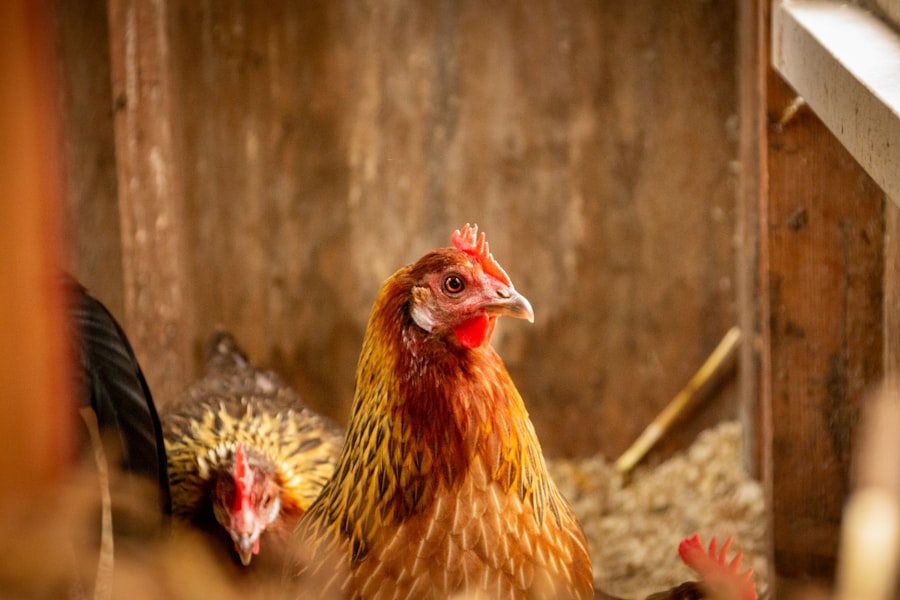
Proper nutrition is essential for the health and well-being of your chickens. A balanced diet will ensure that they have the energy and nutrients they need to lay eggs, grow, and stay healthy. When it comes to feeding chickens, there are several key components to consider, including feed type, supplements, and access to fresh water.
The type of feed you provide will depend on the age and purpose of your chickens. For example, chicks require a different type of feed than adult chickens, and laying hens may benefit from a feed specifically formulated to support egg production. It’s important to choose high-quality feed that is appropriate for the age and purpose of your chickens to ensure they receive the necessary nutrients.
In addition to feed, supplements can also play a role in providing proper nutrition for your chickens. For example, calcium supplements may be beneficial for laying hens to support strong eggshells, while grit can help chickens digest their food more effectively. It’s important to research and understand the specific nutritional needs of your chickens to determine if supplements are necessary for their diet.
Finally, access to fresh water is essential for chickens to stay hydrated and healthy. Make sure to provide clean water in a container that is easily accessible to your chickens at all times. Regularly check and clean water containers to ensure they remain free of debris and contaminants.
By providing a balanced diet that includes high-quality feed, appropriate supplements, and access to fresh water, you can ensure that your chickens receive the proper nutrition they need to thrive.
Ensuring Safety and Security
Ensuring the safety and security of your chickens is essential for their well-being and overall success of your flock. There are several key measures you can take to protect your chickens from predators, disease, and other potential threats. Predator protection is one of the most important aspects of ensuring the safety of your chickens.
Predators such as foxes, raccoons, and birds of prey pose a significant threat to chickens, so it’s important to take steps to secure their coop and outdoor run. This may involve using sturdy materials such as hardware cloth or welded wire to prevent predators from gaining access to the coop. Additionally, consider adding a secure door with latches and locks to keep predators out at night when chickens are most vulnerable.
In addition to predator protection, it’s important to take measures to prevent disease and illness in your flock. This may involve practicing good biosecurity measures, such as limiting exposure to wild birds and other potential carriers of disease. Additionally, regularly clean and disinfect the coop and nesting boxes to prevent the buildup of bacteria and parasites that can lead to illness in your chickens.
Finally, providing a safe environment for your chickens also includes protecting them from extreme weather conditions. This may involve providing adequate shelter from rain, wind, and sun exposure, as well as ensuring they have access to fresh water at all times. By taking proactive measures to protect your chickens from predators, disease, and extreme weather conditions, you can ensure their safety and security while promoting their overall health and well-being.
Maintaining Cleanliness
Maintaining cleanliness in your chicken coop is essential for promoting the health and well-being of your flock. A clean environment will help prevent the buildup of bacteria and parasites that can lead to illness in your chickens. There are several key areas to focus on when it comes to maintaining cleanliness in your coop, including regular cleaning, waste management, and pest control.
Regular cleaning of the coop and nesting boxes is essential for preventing the buildup of bacteria and parasites that can lead to illness in your chickens. This may involve removing soiled bedding, droppings, and other debris on a regular basis. Additionally, consider disinfecting the coop and nesting boxes periodically to kill any harmful bacteria or parasites that may be present.
Waste management is another important aspect of maintaining cleanliness in your coop. Properly managing waste will help prevent odors and reduce the risk of disease in your flock. Consider using a deep litter method or regularly removing soiled bedding and waste from the coop to keep it clean and odor-free.
Pest control is also crucial for maintaining cleanliness in your coop. Pests such as mites, lice, and rodents can pose a significant threat to the health of your flock, so it’s important to take proactive measures to prevent infestations. This may involve using natural pest control methods or implementing regular pest control measures to keep pests at bay.
By focusing on regular cleaning, waste management, and pest control in your coop, you can maintain a clean environment that promotes the health and well-being of your flock.
Monitoring Health and Wellness
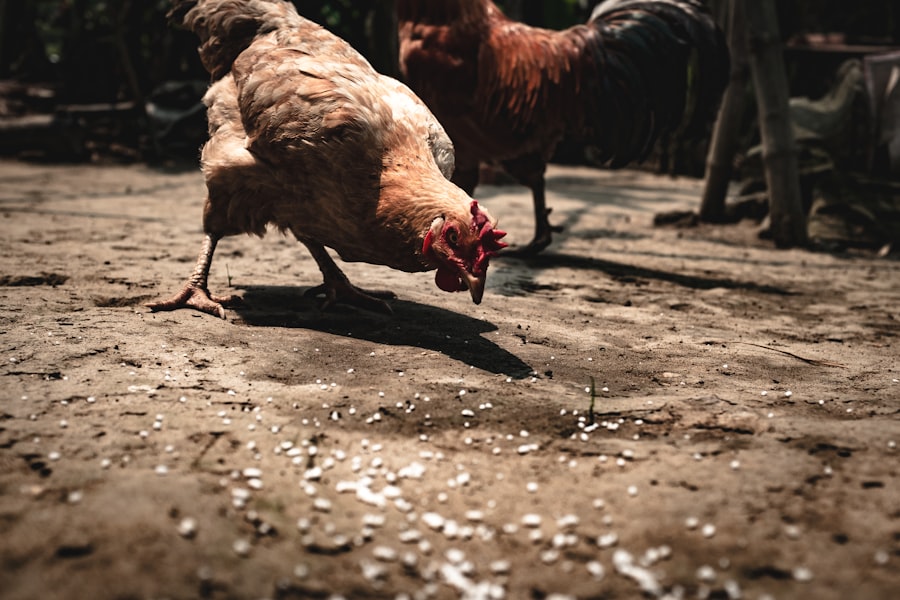
Regular Observation: The Key to Early Detection
Monitoring the health and wellness of your chickens is crucial for identifying potential issues early on and providing appropriate care. Regular observation of your chickens allows you to identify any changes in behavior or appearance that may indicate an underlying health issue. This includes monitoring their activity level, appetite, droppings, feather condition, and overall appearance on a daily basis. By being familiar with what is normal for your flock, you will be better equipped to notice any abnormalities that may require attention.
Preventative Care: Proactive Steps for a Healthy Flock
In addition to regular observation, preventative care is essential for promoting the health and wellness of your flock. This involves providing appropriate nutrition, practicing good biosecurity measures, and implementing regular parasite control measures. By taking proactive steps to prevent illness and disease in your flock, you can help maintain their overall health and well-being.
Seeking Veterinary Assistance: Addressing Health Issues Promptly
Finally, seeking veterinary assistance when necessary is crucial for addressing any health issues that may arise in your flock. If you notice any signs of illness or injury in your chickens, it’s important to seek professional veterinary care as soon as possible. A veterinarian with experience in poultry health can provide an accurate diagnosis and recommend appropriate treatment options for your chickens.
Establishing a Routine and Schedule
Establishing a routine and schedule for caring for your chickens is essential for promoting their health and well-being while ensuring that their needs are consistently met. There are several key aspects of establishing a routine and schedule for caring for your flock, including feeding, cleaning, egg collection, and health checks. Feeding your chickens on a consistent schedule will help ensure that they receive the proper nutrition they need to thrive.
Establish a feeding routine that includes providing high-quality feed at the same time each day while also monitoring their appetite and adjusting their diet as needed based on their age or production stage. Regular cleaning of the coop and nesting boxes should also be incorporated into your routine schedule. This may involve removing soiled bedding, droppings, and other debris on a regular basis while also disinfecting the coop periodically to maintain cleanliness.
Egg collection should be done on a daily basis to ensure that eggs are promptly removed from the nesting boxes. This will help prevent eggs from being damaged or becoming soiled while also encouraging consistent egg-laying behavior in your hens. Finally, incorporating regular health checks into your routine will allow you to monitor the overall well-being of your flock while identifying any potential issues early on.
This may include observing their behavior and appearance on a daily basis while also conducting more thorough health checks on a weekly or monthly basis. By establishing a routine and schedule that includes feeding, cleaning, egg collection, and health checks on a consistent basis, you can promote the health and well-being of your flock while ensuring that their needs are consistently met.
If you’re considering keeping chickens near your house, you may also want to think about the design of your chicken coop. A well-designed coop can make the process of keeping chickens much easier. Check out this article on chicken coop portage for tips on how to create a functional and efficient coop for your feathered friends.
FAQs
What are the benefits of keeping chickens near the house?
Keeping chickens near the house can provide a sustainable source of fresh eggs, natural pest control for the garden, and a source of organic fertilizer for plants.
What are some important considerations for keeping chickens near the house?
Important considerations for keeping chickens near the house include providing adequate space for the chickens to roam, ensuring proper waste management to minimize odors, and protecting the chickens from predators.
What are some common challenges of keeping chickens near the house?
Common challenges of keeping chickens near the house include managing noise levels, addressing potential odor issues, and preventing chickens from damaging landscaping or gardens.
What are some tips for maintaining a clean and healthy chicken coop near the house?
Tips for maintaining a clean and healthy chicken coop near the house include regularly cleaning the coop, providing proper ventilation, and using natural pest control methods to prevent infestations.
What are some important safety considerations for keeping chickens near the house?
Important safety considerations for keeping chickens near the house include securing the coop to prevent predators from accessing the chickens, practicing proper hygiene to prevent the spread of diseases, and ensuring that the chickens do not pose a nuisance to neighbors.
Meet Walter, the feathered-friend fanatic of Florida! Nestled in the sunshine state, Walter struts through life with his feathered companions, clucking his way to happiness. With a coop that’s fancier than a five-star hotel, he’s the Don Juan of the chicken world. When he’s not teaching his hens to do the cha-cha, you’ll find him in a heated debate with his prized rooster, Sir Clucks-a-Lot. Walter’s poultry passion is no yolk; he’s the sunny-side-up guy you never knew you needed in your flock of friends!

